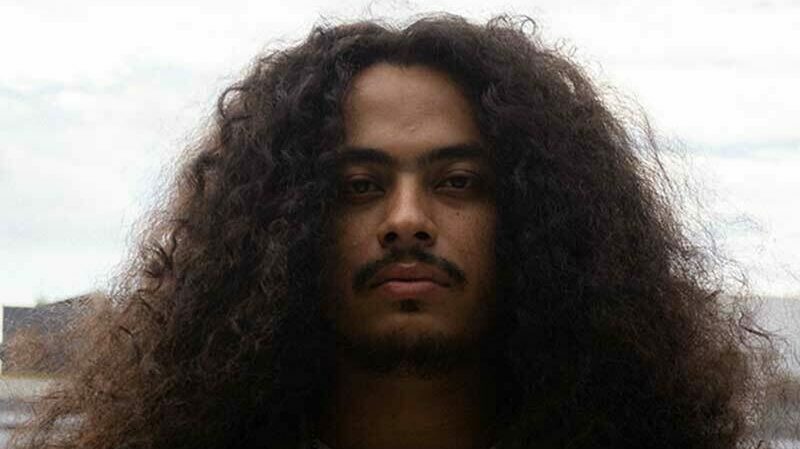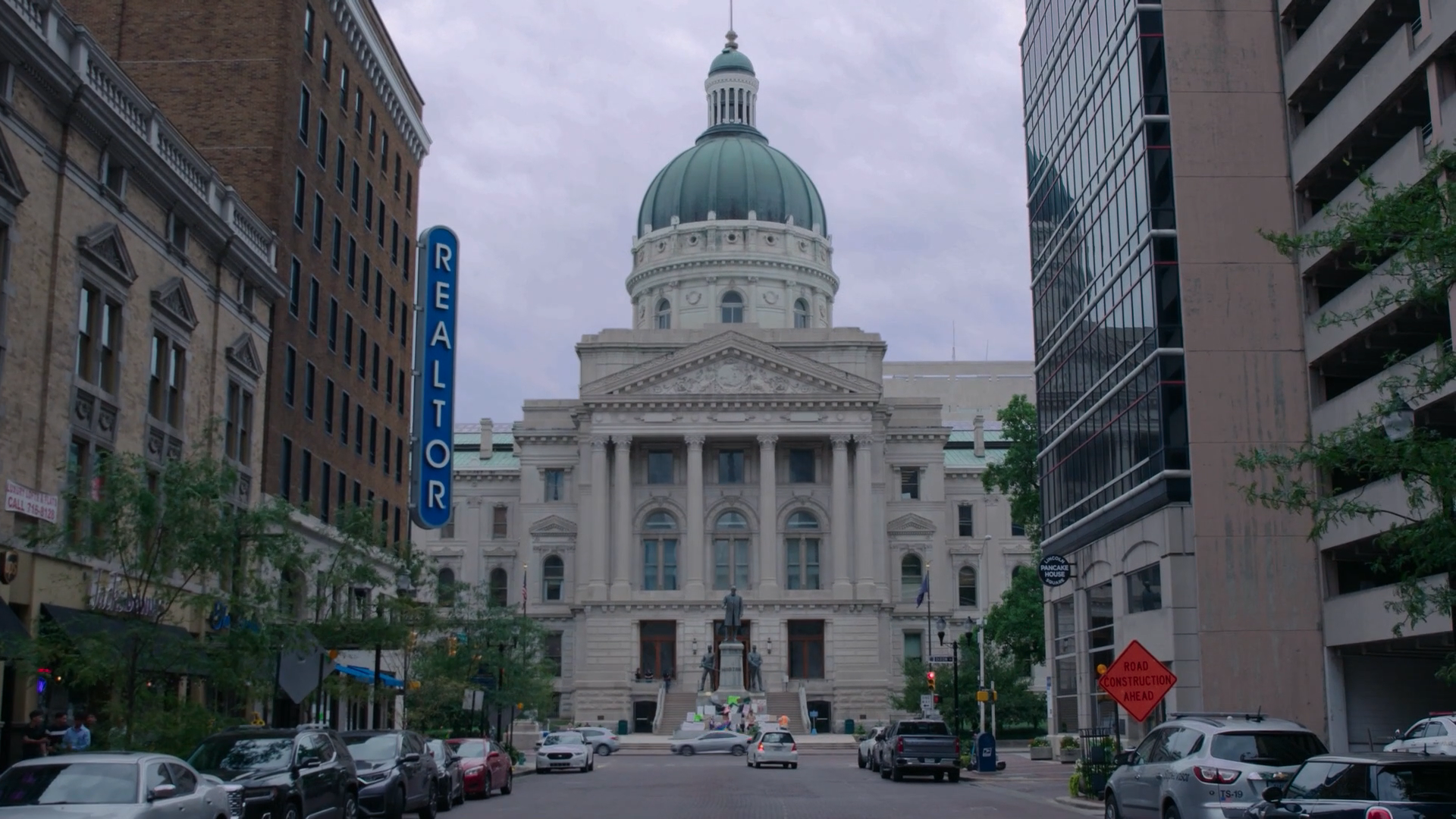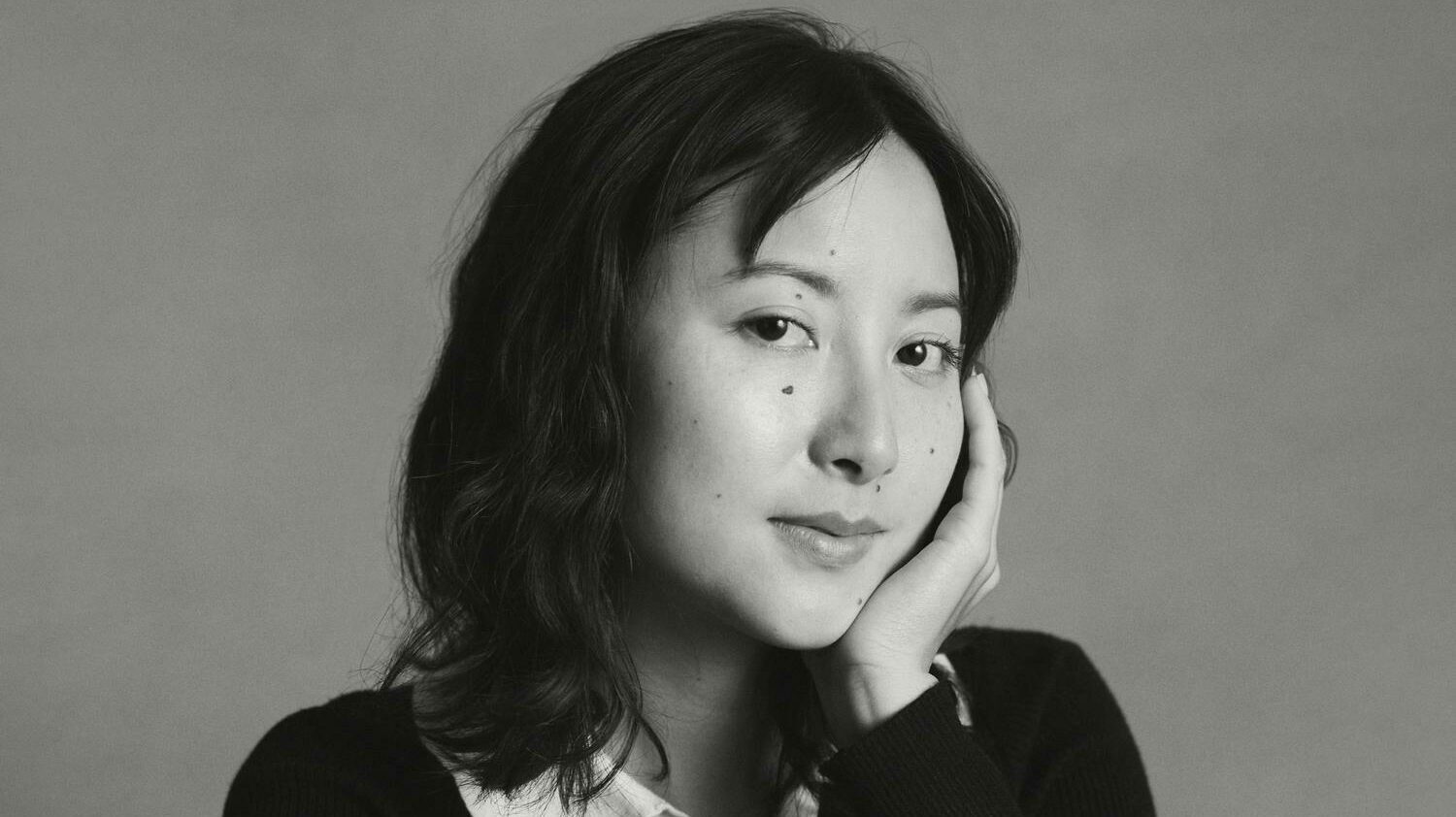Meet the Artist Behind 'Monograph: Lo Harris'
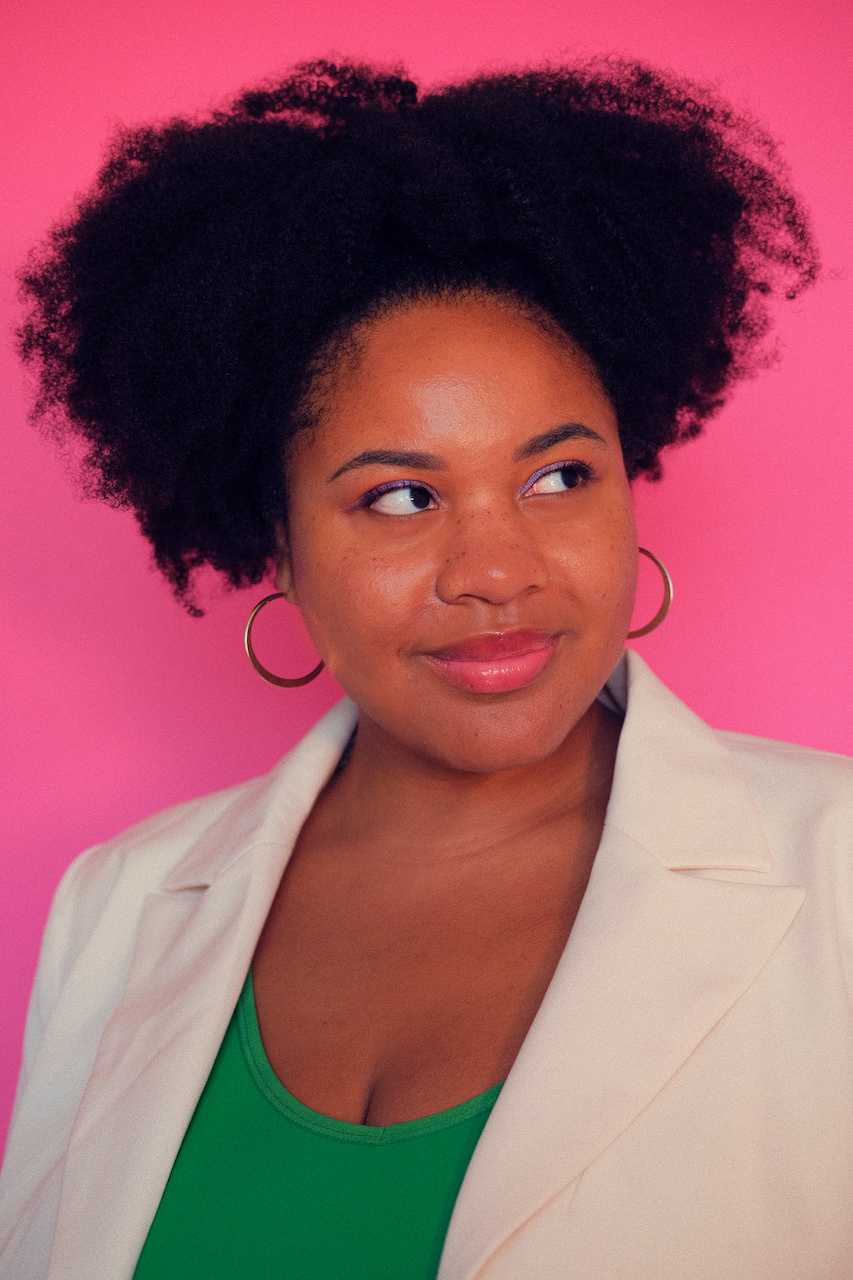
Kelsey Harrison, the director and editor of "Monograph: Lo Harris" catches up with the subject of her film, illustrator Lo Harris.
Kelsey Harrison: You had a lot of illustration and animation under your belt when we interviewed for the film several months ago, but I know you've been really busy, so I'm imagining your practice has developed even further. How has your creative life expanded since then?
Lo Harris: A lot has happened in the last two months. I think both in terms of the clients that I've gotten to work with, and then also in terms of my personal approach to my work. So on the client side, I've gotten to work with Milani cosmetics and do this really cool comprehensive campaign where I provided artwork for this mascara campaign, but I also got to be one of the cover girls in it. So that was a really great way to kind of break the fourth wall, because I think that it's really important for me to show up in my body, as myself, when speaking for my work, and when putting my work out there, because it's important to see someone like me, that looks like me, doing those things, and to be able to enter these various spaces around beauty and fashion and what have you. That's really exciting. Also, I might have done the Old Navy campaign when we talked. Did I?
Kelsey: I think you couldn't speak about it publicly at that time maybe, because you kind of alluded to something with a major retailer that was under embargo.
Lo: Yeah. So for Black History Month of 2022, I got to team up with Old Navy to create a T-shirt that was sold [in Old Navy stores] across the US and Canada. It was for Black History Month as that's a part of their Project We campaign, and that campaign focuses on celebrating diversity in corporate America, and also just empowering diversity in general. And it was me and two other artists, and my work was one of the three T-shirts, and to this day, I'm still getting a lot of pictures of especially little, little girls who are wearing this T-shirt. And it's really cool, because in a lot of ways, I like to kind of look at that shirt and kind of post that up as like the illustration of what it would look like to maybe be the black version of Lisa Frank. You know, Lisa Frank was this really popular thing in the 90s and early 2000s, like really colorful rainbows and tigers and all of this.
And they had these fabulous characters, but it was weird because there weren't really any dark skin characters, right? You had rainbow tigers and rainbow dolphins, but no people of different colors. So it was really cool to be able to create something that little girls, little black girls especially, can kind of look at and see all these various shades of black women and think, "Oh, they look fabulous." And they can wear the shirt and it's really hyper-girly, but also men like to wear the shirt as well, and so it's really nice to kind of see the ways in which different kinds of people just really love this shirt. It's just really funny to just see my guy friends just rocking my shirt going to the grocery store, and they're like proud to wear it.
I get pictures from my church members back in Alabama and they're like, "I'm wearing your shirt," so that's always really exciting. I'm trying to think. So much has happened. I also recently got back from Cannes Lions Festival of Creativity. So I went to France, I was a part of this initiative called the CCBC Cannes Can Diversity Collective that brings young talent to Cannes Lions to experience it for the first time. And I was there with some of the biggest minds in creativity in the ad space and in the media space, so it was really nice to go out there pretty much representing myself, right, because I wasn't with a company, I don't work with a company.
Lo: In fact, I actually just filed my LLC. So, to be self-employed and self-represented, and in this space with change makers, and to be able to network and make these connections, and hopefully create ways to expand my practice that isn't dependent on a brand approaching me, but is more dependent on my own desire to do something, is extremely exciting.
And then finally, my next children's book is supposed to be coming out in October. It's called "Mama's Home." It's written by Shay Youngblood and it's illustrated by me and it's about really a celebration of it takes a community to raise a child. You know, like in non-traditional family structures, auntie culture, like having different aunties who aren't really the sister of your mom, but they're your aunties and they're these people who are in your community who step up and care for the young. So that's going to be like a really cool and wholesome book. And I'm also working separately on a separate manuscript, which will be my first time authoring a children's book. I'm speaking with Random House about working through a manuscript that I can also illustrate as well.
So yeah, and then in terms of the personal side of my practice, so I really kind of realized that I didn't want to just be an artist who when a brand calls, I just make something and then they kind of tell me kind of what they're looking for and I just do it. I wanted to be a self-motivated person. And so for me, I kind of realized that I needed help. So I have been going out of my way to try to put money aside to hire help where I can.
I recently brought on a studio assistant. I have an admin assistant. I've been trying to work with videographer and photographer friends to loop them into projects as well. I've been trying to pitch more and ultimately I guess my dream and my goal in doing this is to get to a place where I have enough funds and enough sponsorship for my practice that I can continue to bring in and commission various freelancers to help kind of build up what I'm trying to create, which is again, the Lo Harris universe and I've done a lot of brand formation around what the Lo Harris universe means and what I intend to do and I think that drives a lot of the actions and a lot of things I'm trying to create with it.
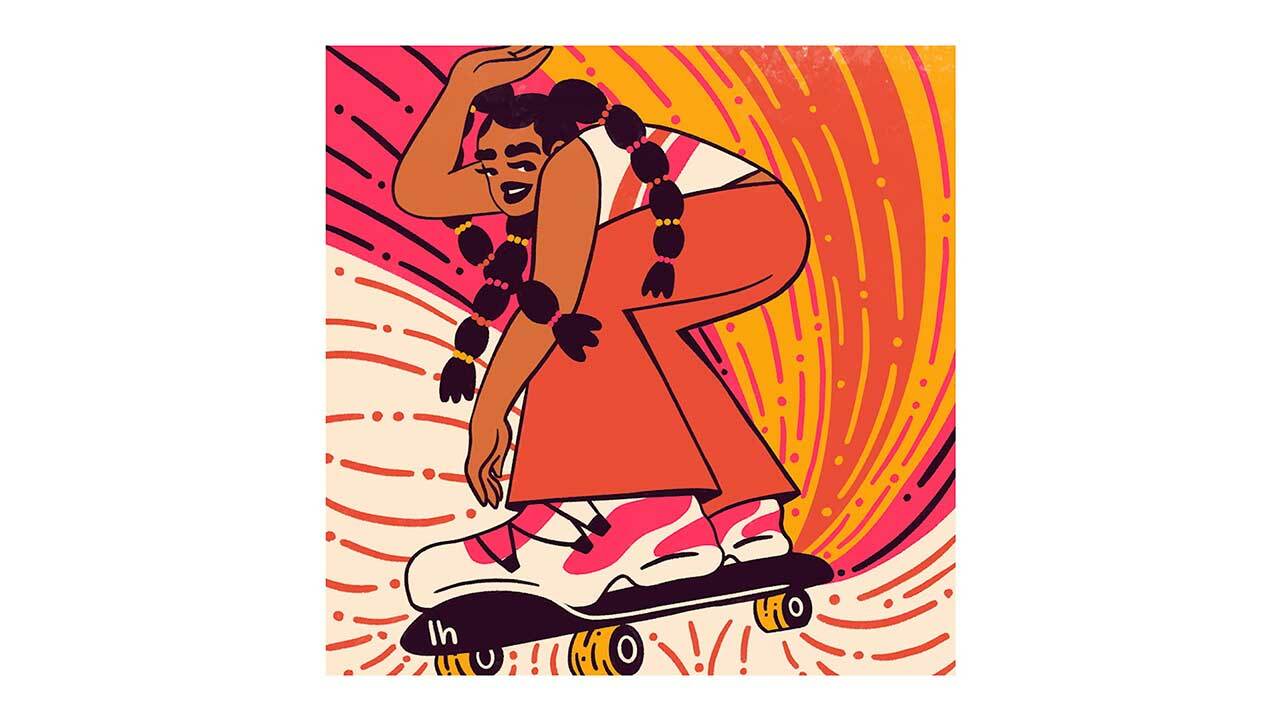
Lo: So I have four pillars, visionary, authenticity, community, and education. And those four pillars kind of embody the different colors of my brands, but it also embodies the kind of work that I do. So visionary, I want to show people that no dream is too big. I want to show people the work that I'm doing, the brands that I'm working with, the initiatives that I'm jumping into, and to kind of pull back the curtain a little bit and say this is what's going into it, this is what it looks like to do this.
And authenticity, I've always said that my artwork exists not in ignorance of what's happening in the world, but in spite of what's happening in the world. There's a lot of hurt in the world right now. There are a lot of things, there are a lot of political matters. And my work does not try to block that out and plug its ears. My work really does want to coexist alongside that chaos and in a lot of instances, respond to that chaos in a way that tries to turn it on its head, and enable people to make a change, and to do something, and to stand up, and to use their voices.
So I know with the things happening with Roe V. Wade, I created a piece of artwork that I actually just put up on my website for people to download and to use in their protests if they so see fit. And then the other pillar, education, I've been really into trying to teach creative people how to talk about their work, how to approach their work, how to stay motivated and I've been doing a lot of things on Instagram around creating those little reels where it's just giving advice and trying to be that big sister in art.
And then finally in terms of community, I realized I really want to be connected to my creative community. I don't believe in gate keeping. I don't believe in trying to hide the secret sauce, the Krabby Patty recipe, I'm not doing that. I think that it's really important that I engage with my creative community, that I fellowship with other creative people. And I've started things like my Instagram live series called One on One with Lo where I interview different creative professionals, whether they be photographers, filmmakers, artists, animators, et cetera, and chat with them about the things that they're trying to say in their work and the ways that they show up in the world and to find common ground with them and to hopefully impart some wisdom to people who are interested in listening and gleaning from those conversations. So I've been doing a lot of programming, both on the client end and then on my personal end as well.
Kelsey: Wow. I am not surprised that you're scaling, you're getting more people involved, because that is so much for one person to do. It's crazy. I'm so inspired by that. But that also segues perfectly because I know that you are really passionate about sharing your expertise with other creatives and would love to know what kind of advice, especially since this film talks about you taking the leap and transitioning into freelance full time, what advice do you have for other creatives who are kind of considering a transition like that or who might be scared to take the leap?
Lo: Yeah. I think that feel gratitude for the potential is a really big thing because I think that I've been having this conversation with people in my life recently that it is unfair that not everybody... like everybody should be able to do work that makes them feel fulfilled and not everyone's going to have that opportunity. So the fact that you're able to even consider it, and to even entertain the idea is a really exciting prospect, and it's something to be incredibly grateful for.
And then my next thing would be to really follow your own pace and write your own script. You know, the way that you jump into your creative career doesn't have to look like the way that you read about in the magazines or that you see in celebrity interviews. Sometimes you're not just going to be discovered one day. Sometimes it's a little less romantic. Maybe it's more practical where you just kind of decide what are my standards of living? How much money should I save in order to feel secure in my standard of living? What are ways that I can potentially cut back if I'm finding that I have some shortcomings in the process of transitioning?
And really just knowing yourself and checking in with what you actually want and what you're comfortable with. And that goes not only for the potential of starting a new career, but also it goes for how you feel about where you're at right now. You know, when I was in news, I kind of had to reckon with the fact that I didn't even want my boss' job. I didn't want to be my boss realistically, so what am I working towards? Am I just going to do this indefinitely? Am I comfortable with the stress that comes with working in news, the quick turnaround, the hard subject matters? Is that something that actually makes me happy? Do I actually feel appreciated in this space? Do I feel like I have a voice? Would I be not that mad if I got laid off one day? Really asking yourself those questions and knowing yourself and how you feel. if you have the option to choose your happiness, why deny yourself that?
Kelsey: That's great advice. Talking about trade offs and just sort of checking in, what are the standards you're comfortable with? How do you try to balance your personal work and your mission? Because you're very mission driven, I think that informs everything you do, but how do you balance that with the hustle of commercial work and keeping your voice clear through the things that you do for money?
Lo: I realized that I had to start missing out on things intentionally, because the thing is, people aren't going to know how to treat you or they're not going to know who you are unless you show them how to treat you and you show them who you are. And if I'm saying... I mean, I know there was a time where I was saying yes to almost every brand that came up to me. I didn't care how legitimate it seemed. I have done things with my art that I am not proud of in terms of just drawing things, not that it's morally corrupt or anything, but I've done things with my work that feel like they almost fall flat in the face of this vision that I have for my work now. It's like, "Huh, this seems like such a mundane... You know what I mean? This doesn't say anything about my work. This doesn't say anything about me. This doesn't say anything about what I stand for and what I'm interested in."
And so in the transition of really kind of scaling my business, I've also had to get comfortable with missing out on opportunities. So I've had to start saying no when a potential client comes up to me with a project that technically I could do this, but do I feel like it, do I want to do this? Is this something that's exciting for me or is this something that I'll just be groaning through the whole time? I try to say no to those. I try to say no to things that might compromise a particular moral on something that I have unless I decide that I want to pursue it outside of that.
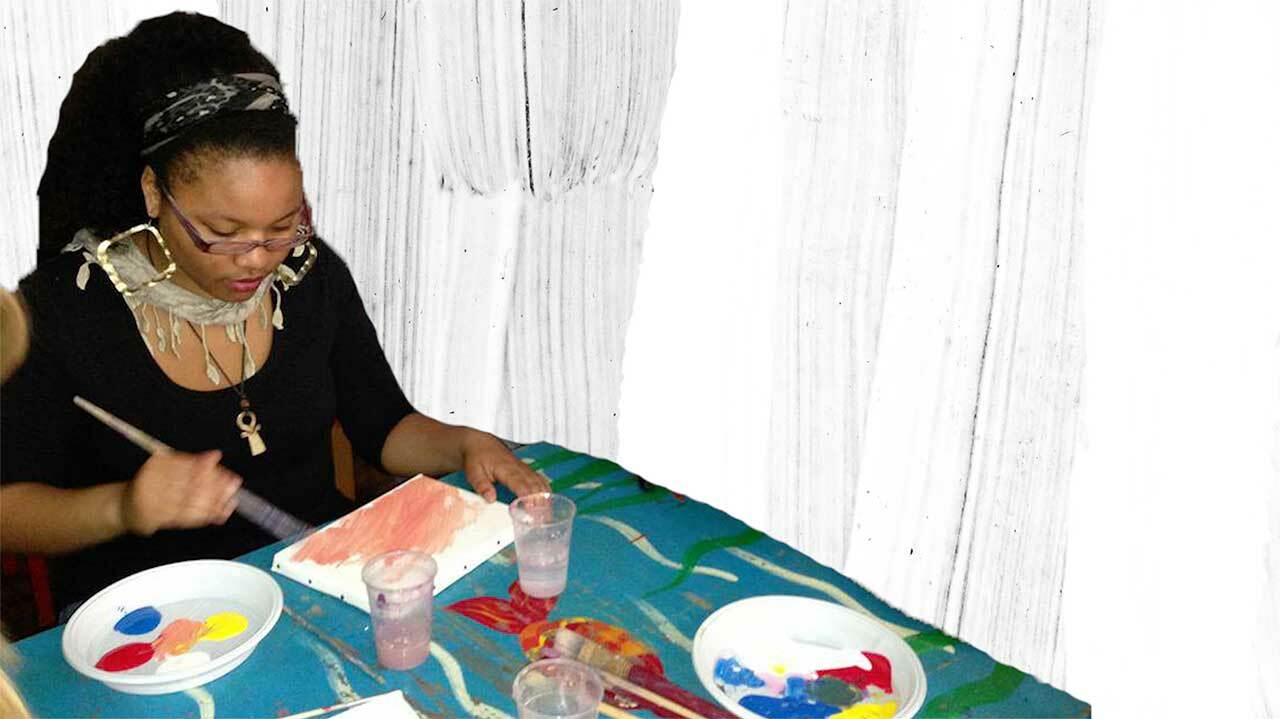
Lo: So I know one thing that I was really hung up on was NFTs. I did not want to participate initially when the conversation was coming around because of all the things that people were telling me about the environmental impact of it. And then it really wasn't until, I think I turned down about five different opportunities from brands around NFTs, which it would've been really good money and I turned it down, and then it was finally after the potential of having the proof of stake, proof of work switch happening and the lack of environmental impact and that conversation started that I finally broke down and actually did an NFT with Meta, but I held out for a really long time and it did take a lot of personal interrogation around like… does this align?
Sometimes it's really difficult. Don't beat yourself up if you feel like you have to say yes to something, but if you are in the position where you really don't need to say yes, or if you feel like your work is being undervalued. People who are going to pitch you a job and way undervalue your work, if you say yes, you're basically giving them permission to disrespect your time. They're not going to see that as a favor. They're going to see that as an opportunity, and they're going to take you for everything you've got if they're not paying the full price, if they're not paying the price that you're worth. So I've really had to start being intentional about saying yes to certain things, saying no to certain things, and seeking out certain things.
So a big part of me trying to support myself right now in this age where I'm trying to hire people on to help me out and I'm also saying no to things that don't necessarily make sense for me, I'm like, "Okay, well what does make sense for me?" Because I just can't sit on my hands and be like, "Oh, I hope my dream brand notices me." I can't do that because there's a chance that they're just not... The internet is so big, they're not going to notice you unless some freak accident happens. You know, my virality was a freak accident, but it's not something that I can just lean on the whole time. So I started creating pitch decks and I started pitching my work and pitching myself to all of these various brands and I started creating this rapport with potential clients where I'm telling them what I want to do.
And they're like, "Yeah, actually, maybe we can do that." And the conversation is a bit longer and it is like a risk because maybe they want to pull out. For example, I decorated my bike recently and I reached out to the bike company with the decorations that I did and it started a conversation around like, "Maybe you could decorate and we could do a giveaway on our page." And I'm like, "Hey, let's elevate this. How about I come out to California? How about we do this?" And that's an actual conversation that's now happening that wouldn't have otherwise happened had I not reached out and had me and my assistant not done the whole pitch. And I think it's something that's going to pay off because that's something I actually want to do and then when you bring the ideas to them, they may be like, "Yeah, that is a good idea. I do see how this benefits the brand." So really putting yourself out there and coming with ideas has been super helpful in that.
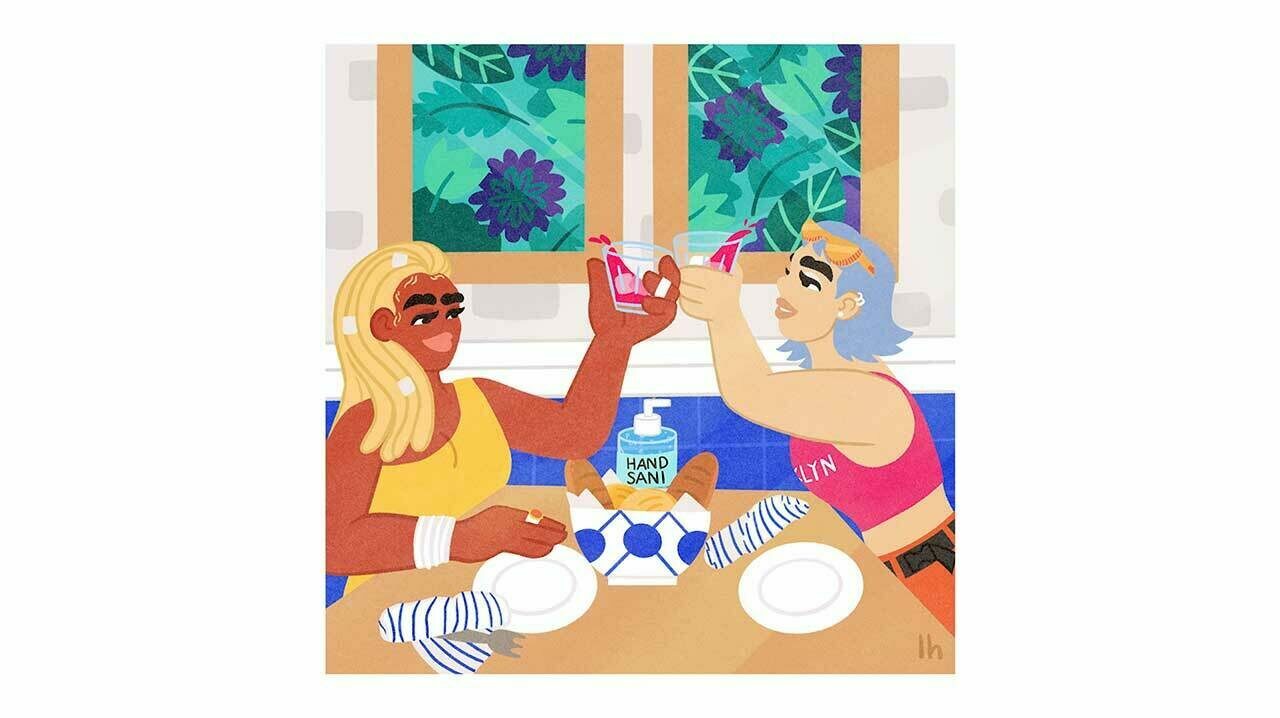
Kelsey: It sounds like you having excitement and interest in your own values and your own voice is leading you to the opportunities that you really want. Whereas maybe earlier in your career, you're just saying yes to everything.
Lo: Yeah, I was letting the industry define me instead of defining myself through the industry. I was letting other people's decision that my work is worthy of their brand, let me know that my work is worthy of their brand, instead of me finding that worthiness in my work period, and saying you should work with me. I think that self-definition is something that I really had to work towards and it didn't happen overnight. It was something that I really had to experience as I got more comfortable with my style and got more comfortable with what I wanted, and what I didn't want instead of taking note of like what projects really made me excited, and what projects I was like, "Ugh, never again."
Kelsey: If you could pick one thing that was the most helpful for you in finding that clarity and honing that practice, would you have any tips? In terms of evaluating this project will be a yes or this project will be a no. Having the confidence to be able to walk away from something or having the confidence to say, "Hey, this thing that I already want to do is good enough for me to get in front of a brand and pitch," which is kind of vulnerable.
Lo: It is very vulnerable. I mean, well first the worst thing that people can say is no. The worst thing that can happen is that nothing happens. So, I mean already that's like a net zero. It's not like you're coming in and beating you up or anything. The worst thing that could happen is that nothing happens. I think in terms of being able to say, "Yes, this project's for me," "No, this project isn't for me," it's I guess really kind of having a sense of mutual respect where I think that I'm a lot less likely to respond to an inquiry if it's clear that they really don't know my work that well. People have emailed me saying, "Oh, I looked up top black artists and I want you to do this project that is way below the scope of the kind of work that you have already established that you do."
You know what I mean? I want you to work on this badly written children's book that's a personal project of mine. I just published something with Random House. You know what I mean, things like that. So a big no for me is when it's clear that people don't know me or didn't take the time to get to know me or my work before they reached out, or if they're trying to compare my work to another black artist's work, which it's really unfortunate with black artists in that a lot of the time, whereas the greater arts movement, including white artists, gets to be defined by the aesthetics that come forth in the actual piece of work. Black art is interesting in that it is often categorized by the identity of the artist doing that work. And so you'll have all these different styles of art, whether it's surrealism or this or that, or the third, being kind of glommed together and compared to one another and referenced to one another by nature of being from a black artist, which is really unfair to the artists.
And so there are sometimes where brands might approach me in that way where they're just like, "We just need a black artist." And I'm like, "Oh man, that's pretty rough. I wish you knew my work."
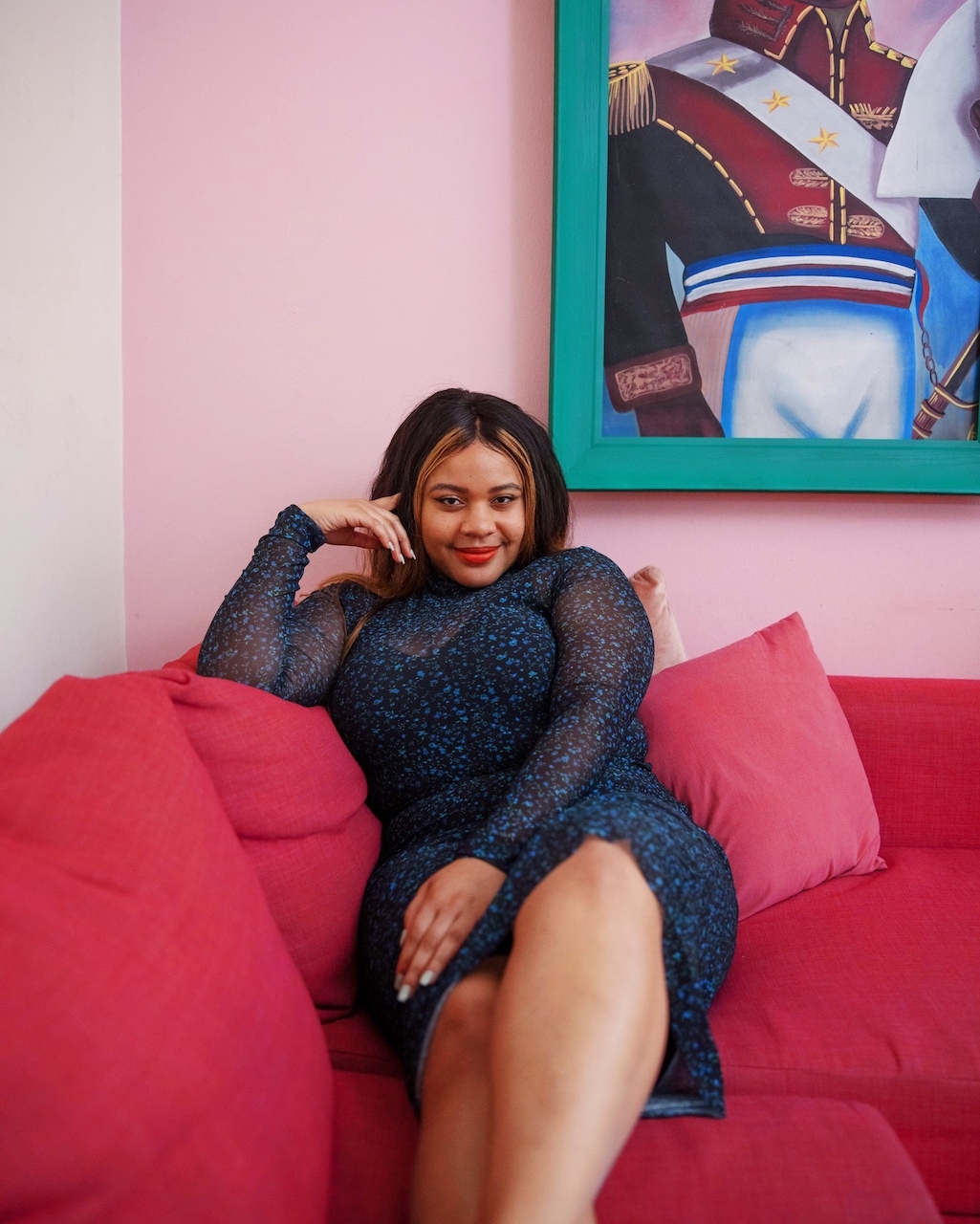
Lo: It also helps to find assistance when you can. I know that it's not entirely probably the easiest thing to do as a first move to hire help, but with my assistant, who I'm currently trying to, as my assets grow, I want to try to transition her more into a managerial role and then find someone else to manage social media because I feel like she gets my vision. When you have someone in your life who understands what you're trying to do, my whole goal with her is I want to build together. I want to literally, and she knows this, we're looking at each other and we're like, "Okay, maybe she's technically doing a bit more work for me than she would for other clients." we're trying to work this out because I know if we get this, it's about teamwork.
And so having another person who understands what I want to bounce these ideas off of and to kind of reaffirm like, "Okay, but if I were this brand, I feel like I'd want to hear how this actually impacts me or how can we add this in here?" And then also creating a system for yourself. So one of the best things that I've done for myself is I've developed a pitch template for myself. I use pitch.com, Google slides, whatever you want to use, and I designed a pitch in my colors and all of this and I designed a way to kind of plug and play, like a basic storytelling structure, telling them who I am, why I have impact, how we can work together.
And I kind of plug and play for each brand to kind of illustrate what it would look like for us to work together. I think that's a really compelling way when you come with a presentation and when you come prepared with visual materials, and when you have a very specific idea. You have to be specific, but open. So you can't be so hyper specific and unrelenting that if they were like, "Well, we don't want to do that, but maybe we could do this," and you're like, "No." And they're like, "Well I guess we can't work together." You don't want to do that, but you also don't want to be like, "Yeah, maybe we could do something."
Because that ambiguous something can either lead to you doing something that maybe has less significance than you probably would've imagined initially when you were thinking of something, or it could lead to you all vibing and then never following up with it. So you have to be specific and open. You have to have systems in place. You have to set yourself up, like try to find ways to templatize your approach to really perfect your pitch. And then also where you can seek help, bring someone on board. Build a partnership with someone who can support your work and who understands your work and vow to grow together. Draft your contract, do whatever you need to do. I think for me, the people I work with don't work for me, they work with me, and I think that's really important.
Kelsey: Thank you so much for your time! Any final thoughts you’d want to share?
Lo: I'm just excited to continue expanding my practice and to hopefully land myself in the position to work with potential art incubators or art funders who want to build communities because community building is something that I'm really interested in. Nurturing an art community, whether it's physically in a place or in the sense of giving out a grant or doing something for someone, is something that I'm really interested in and I'm open to.
Monograph: Lo Harris
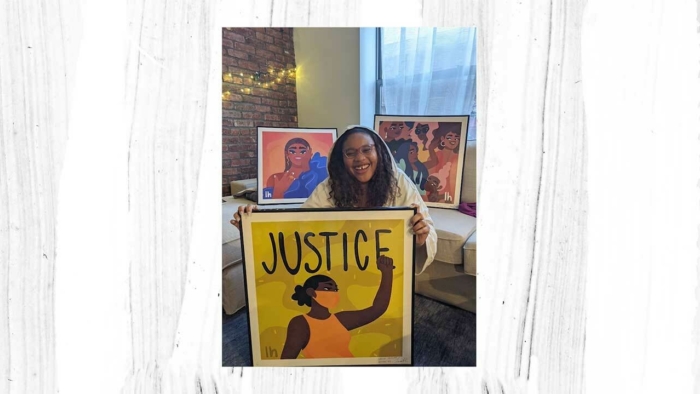
About the Author
More like this
Visit the Behind The Lens Blog